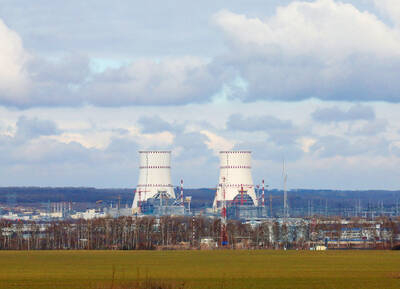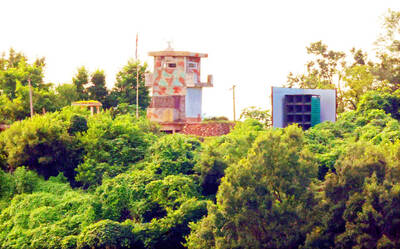Venezuelan President Hugo Chavez accepted a handful of coca leaves from his Bolivian ally Evo Morales and chewed them during a summit meeting on Saturday, saying "coca isn't cocaine."
"You know the strength that coca gives," Chavez said. "I've really grown used to it every day in the morning."
The socialist leader joined the Bolivian president in defending the leaf, chewed by Andean Indians for centuries, while condemning its use in making cocaine.
US officials have tried to stamp out or restrict coca cultivation.
Chavez accused Washington of trying to use the issue of drug trafficking to discredit his government for political reasons, noting that White House drug czar John Walters has accused him of facilitating the flow of Colombian cocaine through Venezuela.
Chavez called that "a serious thing," but smiled as he thanked Morales for recently sending coca to him and Cuban President Fidel Castro. Chavez asked for more.
"You didn't bring me the coca leaf I asked for? Where are the coca leaves?" Chavez asked Morales, a former coca farmer. "I want the leaf that Evo produces there, the pure, pure coca leaf."
Standing up from a table, Morales walked to Chavez and opened a drawstring bag.
"Oh, friend, I knew you wouldn't fail me! They were running out," Chavez exclaimed, accepting a handful of leaves and putting some in his mouth.
"The sacred leaf of the Inca, the Aymara," Chavez said. "Thank you, brother ... As Evo has said -- and I repeat it, coca isn't cocaine."
Morales, who rose to power as head of a coca growers' union, told leaders at the regional summit that the small, green leaf is healthy and beneficial, noting its use as an ingredient in toothpaste, as well as for coca tea. He said Coca-Cola has long used a cocaine-free coca extract as part of its secret recipe -- something the US-based drink maker does not discuss.
Morales, backing a policy of "zero cocaine, not zero coca," has stepped up anti-drug enforcement while attempting to control coca crops through cooperative eradication programs.
His initiative has largely avoided the violence of past US-backed campaigns, in which troops clashed with farmers, but US officials argue it has failed to significantly reduce Bolivia's coca crop.
Venezuela has provided financial help to Bolivia to build plants to produce coca tea and flour. Those plants are now under construction.
Some of Chavez's opponents question his affinity for coca, some even suggesting that he should undergo a drug test -- an idea he dismissed as silly.
"A group of Venezuelans from an opposition party have now made an accusation against me for consuming coca, because they say I'm a drug user and have asked for a toxicological exam," Chavez said.
"They're lackeys of the [US] empire," he said. "They try to ridicule us, but they're the ones who end up making fools of themselves."

Philippine President Ferdinand Marcos Jr has fired his national police chief, who gained attention for leading the separate arrests of former Philippine president Rodrigo Duterte on orders of the International Criminal Court and televangelist Apollo Carreon Quiboloy, who is on the FBI’s most-wanted list for alleged child sex trafficking. Philippine Executive Secretary Lucas Bersamin did not cite a reason for the removal of General Nicolas Torre as head of the 232,000-member national police force, a position he was appointed to by Marcos in May and which he would have held until 2027. He was replaced by another senior police general, Jose

POWER CONFLICT: The US president threatened to deploy National Guards in Baltimore. US media reports said he is also planning to station troops in Chicago US President Donald Trump on Sunday threatened to deploy National Guard troops to yet another Democratic stronghold, the Maryland city of Baltimore, as he seeks to expand his crackdown on crime and immigration. The Republican’s latest online rant about an “out of control, crime-ridden” city comes as Democratic state leaders — including Maryland Governor Wes Moore — line up to berate Trump on a high-profile political stage. Trump this month deployed the National Guard to the streets of Washington, in a widely criticized show of force the president said amounts to a federal takeover of US capital policing. The Guard began carrying

Ukrainian drone attacks overnight on several Russian power and energy facilities forced capacity reduction at the Kursk Nuclear Power Plant and set a fuel export terminal in Ust-Luga on fire, Russian officials said yesterday. A drone attack on the Kursk nuclear plant, not far from the border with Ukraine, damaged an auxiliary transformer and led to 50 percent reduction in the operating capacity at unit three of the plant, the plant’s press service said. There were no injuries and a fire sparked by the attack was promptly extinguished, the plant said. Radiation levels at the site and in the surrounding

‘DELIBERATE PROVOCATION’: Pyongyang said that Seoul had used a machine gun to fire at North Korean troops who were working to permanently seal the southern border South Korea fired warning shots at North Korean soldiers that briefly crossed the heavily fortified border earlier this week, Seoul said yesterday after Pyongyang accused it of risking “uncontrollable” tensions. South Korean President Lee Jae-myung has sought warmer ties with the nuclear-armed North and vowed to build “military trust,” but Pyongyang has said it has no interest in improving relations with Seoul. Seoul’s military said several North Korean soldiers crossed the border on Tuesday while working in the heavily mined demilitarized zone (DMZ) separating the two Koreas. The incursion prompted “our military to fire warning shots,” South Korea’s Joint Chiefs of Staff